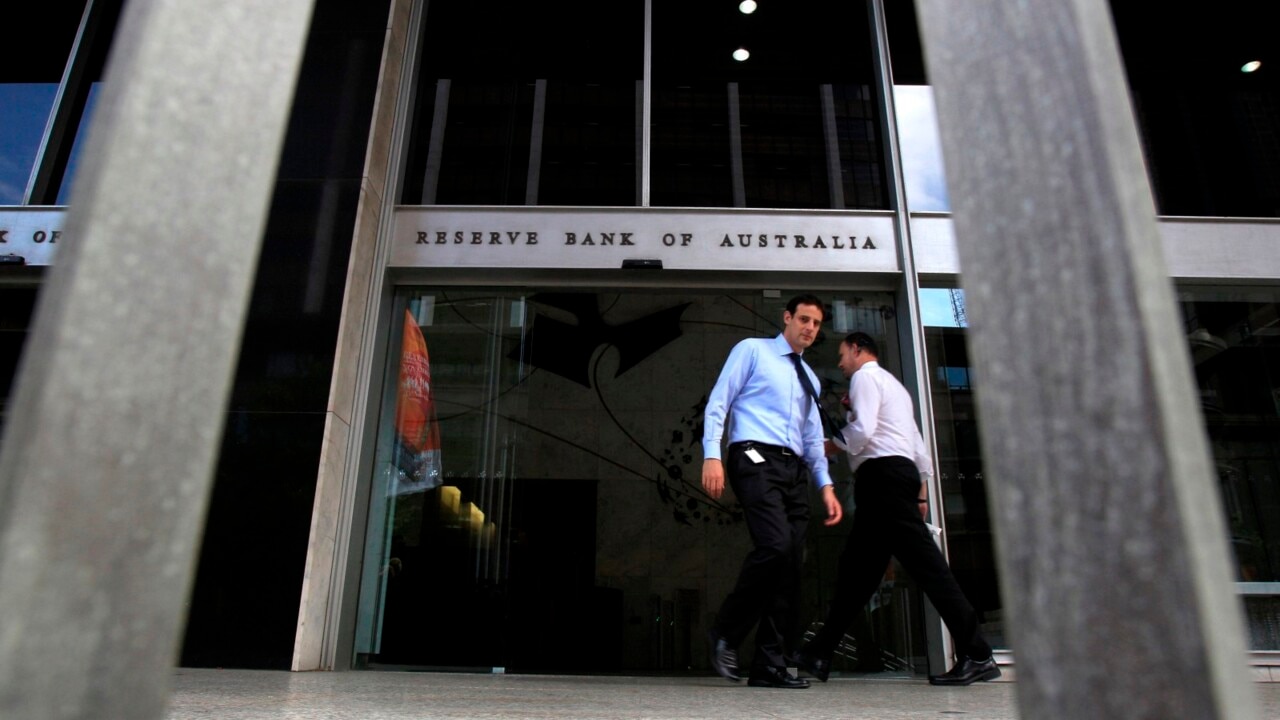Macquarie Group flags record profit on the back of the commodities boom
Macquarie says its commodities unit has a ‘long runway’ for growth and its earnings have put the company’s annual profits on track for another record.

Macquarie Group is adamant its commodities unit has a “long runway” for growth as it pushes into Asia and new products – and the division’s bumper earnings has put the company’s annual profit on track for another record.
The asset management and investment banking behemoth on Tuesday said net profit in the nine months ended December 31 was slightly up on 2022’s record, buoyed by “exceptionally strong” results across the commodities business.
That spanned gas and power and oil products, given dislocation in global energy markets which spurred increased trading, physical execution and risk management activity.
The quarterly trading update – which does not provide actual profit numbers – helped Macquarie’s shares buck a drop on the ASX 200 on Tuesday, to finish 0.7 per cent higher at $190.33. The update also prompted analysts to revise their Macquarie earnings estimates, with at least one tipping its annual result will top $5bn.
Barrenjoey’s analyst Jon Mott upgraded his earnings-per-share estimates and pencilled in an annual profit of $5.05bn, eclipsing Macquarie’s 2022 record $4.71bn result.
Mr Mott questioned, however, whether the commodities and global markets (CGM) unit could sustain the pace of its earnings growth given he estimates it will contribute 55 per cent of Macquarie’s full-year operating profit.
“While we see CGM as a very strong business with longer-term opportunities, sustaining this performance is likely to be challenging. Then again, it’s not the first time we have said that!”
Morgan Stanley analysts said: “Macquarie has delivered a strong 3Q23 trading update in light of challenging market conditions, with upside risk to FY23 consensus (analyst estimates).”
Citigroup’s trading desk noted a better third-quarter result than the broker had expected.
Macquarie chief executive Shemara Wikramanayake shrugged off any suggestions that less-volatile energy markets or other factors would significantly hinder the commodity unit’s growth prospects.
“It’s taken decades to build the deep expertise that we have (in the US and Europe) but once we actually have the technical knowledge, taking it into adjacent markets is a matter of just getting familiar with what’s going on in that market,” she said.
“We are now growing into Asia and the growth rate, I certainly feel in the position I sit is, happening a lot quicker … As we head into Q4 ultimately the base franchise we’re confident will deliver results, but we can’t predict things like (energy and related trading) demand.”
In response to an analyst question about spinning off the commodities division onto the ASX, Ms Wikramanayake said she believed the current structure was working well.
“In terms of discussion at management and at the board we are very happy with the mix of businesses. We have the diversification and our ability to support them,” she added.
“I certainly haven’t seen our commodities business at this point constrained in its patient, adjacent growth … If that point came then we would discuss how else we could support it.”
Macquarie stopped short of providing detailed guidance for the quantum of group full-year profits. However, if the December-quarter earnings momentum continues, the company looks set to hit a record annual result for the 12 months ended March 31. Macquarie announces its annual profits in early May.
On the divisional outlook, Ms Wikramanayake signalled the commodities division would deliver 2023 earnings that would be “substantially up” on last year, subject to market conditions.
That was another ratcheting up in guidance after Macquarie upgraded expectations for the commodities and global markets unit in October to say it expected income – including that from gas and power transport and storage contracts – to be higher after a strong first half.
Before October, Macquarie expected commodities income to be lower in 2023.

But Macquarie reiterated challenges in other parts of its business on Tuesday. It noted the investment banking arm would see transaction activity “substantially down” in its 2023 year, in line with global trends, following a record prior period.
Macquarie’s asset management unit housed $797.8bn as at December 31, steady on the prior three months, as the value of listed investments fell, but private markets funds edged higher.
Tuesday’s announcement said Macquarie had group surplus capital of $12.5bn, although new “unquestionably strong” capital requirements that came into effect in January, will reduce that to $10.1bn.
Across its stable of investment funds, Macquarie has $31.6bn to deploy after raising $30bn in the nine months ended December 31.
Ms Wikramanayake said the high levels of capital on the group’s balance sheet reflected the uncertain macro economic environment and provided scope for Macquarie to pounce on acquisition opportunities.
“We’re seeing a lot of dislocation potentially happening and in that sort of environment it behoves us to have capital in case there may be acquisitions, for example in the asset manager,” she added.
In banking and financial services “we have very good organic growth but it doesn’t mean we wouldn’t look at opportunities”.
Macquarie’s divisions that are linked to financial markets had a combined profit contribution in the December quarter that was “substantially up” on the same period a year earlier. Those units include commodities and global markets and the investment banking arm, Macquarie Capital.
Divisions with more “annuity-style” or less volatile income had a combined December quarter profit contribution that was “substantially down” on the same period in 2022, largely due to green energy asset sales in that earlier period. The units in that category are Macquarie’s asset management arm and its banking and financial services unit.
Macquarie’s deposit book climbed 8 per cent from September 30 to December 31 to $125.7bn, while the group’s home loan portfolio rose 4 per cent to $105.4bn. Funds on its investment platform increased 5 per cent to $117bn.
Macquarie is still navigating enforcement action by the banking regulator which saw it forced to hold $500m in additional capital, due to breaches of prudential and reporting standards. On Tuesday, Macquarie said it was “making good progress” on remediation plans.
Macquarie’s guidance also pointed to an increased contribution from its financial markets platform in 2023, helped by customer trading activity and a continued contribution from asset finance.
Macquarie said December quarter fee revenue in its investment banking arm – including from advising on takeovers and floats – was “significantly down” on the prior corresponding quarter. Investment-related income was also “significantly down”, after the group booked large asset sales in the prior December quarter.
As flagged by The Australian, this year Macquarie will conduct its more detailed operational analyst and investor briefing in the US in March.
Ms Wikramanayake said the trip would provide “deeper insight” into Macquarie’s US operations, which account for about 38 per cent of total income.






To join the conversation, please log in. Don't have an account? Register
Join the conversation, you are commenting as Logout